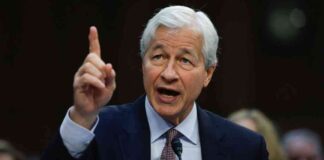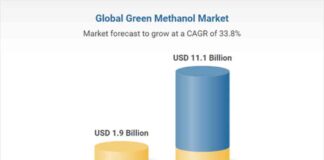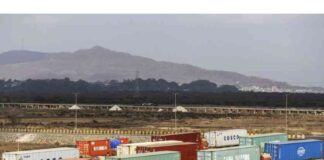The far-right AfD leader celebrates ‘crazy success’ on German election day
On a recent German election day, the leader of the far-right Alternative for Germany (AfD) party couldn’t contain his excitement as he hailed their ‘crazy success.’ The party’s performance in the election had exceeded expectations, sparking both elation and concern among the German populace. This unexpected victory has raised questions about the future political landscape in Germany and the potential implications for the country’s democratic values.
Unforeseen triumph ignites controversy
The AfD, known for its nationalist and anti-immigrant stance, made significant gains in the election, securing a substantial number of seats in the German parliament. This surge in support has sent shockwaves through the political establishment and ignited a fierce debate about the rise of far-right ideologies in the country. Critics have raised concerns about the implications of having a far-right party with a sizable presence in the government, citing potential threats to social cohesion and minority rights.
Expert commentary from political analysts underscores the significance of the AfD’s success, pointing to broader trends in Europe and the global political landscape. Dr. Maria Schmidt, a leading political scientist, highlights the need for a nuanced understanding of the factors driving the rise of far-right movements. She emphasizes the importance of addressing underlying grievances and socio-economic disparities that fuel support for populist and nationalist agendas.
Challenges ahead for German democracy
The AfD’s newfound influence in the German political scene poses a challenge to the country’s democratic values and principles. The party’s controversial rhetoric and policies have sparked concerns about the erosion of democratic norms and the potential for increased polarization within society. As Germany grapples with the aftermath of the election, there is a growing sense of unease among citizens who fear the impact of the AfD’s agenda on the country’s social fabric.
In a recent interview, Chancellor Angela Merkel expressed her concerns about the rise of far-right extremism in Germany and emphasized the importance of upholding democratic values in the face of adversity. She called for unity and solidarity among citizens, urging them to reject hate speech and discrimination in all its forms. Merkel’s words resonate with many Germans who are apprehensive about the future trajectory of their country in light of the AfD’s electoral success.
As the dust settles from the election, it is clear that Germany is at a crossroads, facing critical decisions about the direction of its political landscape. The AfD’s ‘crazy success’ has set off a chain reaction of events that will shape the country’s future for years to come. It remains to be seen how German society will navigate this challenging period and uphold its democratic values in the face of rising extremism.
In conclusion, the AfD’s unexpected triumph in the German election has sent shockwaves through the country, raising profound questions about the future of democracy and social cohesion. As Germany grapples with the implications of this electoral outcome, it is crucial for citizens and leaders alike to stand united against hate and division, reaffirming their commitment to the values of democracy and inclusivity. The road ahead may be fraught with challenges, but with a collective effort to uphold these fundamental principles, Germany can emerge stronger and more resilient in the face of extremism.






















